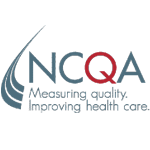
The familiar sound of an alarm pulls Cassidy from slumber. She braces herself for the day ahead, the tightness in her chest returning. Sunlight streams through the curtains as she reaches for her phone, diving into a barrage of messages and social media updates. As she scrolls through posts showcasing her friends partying, dieting tips from unrealistically thin women, and her favorite influencer’s most recent, expensive shopping haul – Cassidy feels overwhelmed.
By the time she sets her phone aside, Cassidy is already battling feelings of insecurity, anxiety, and depression, all before 9 a.m.
According to Forbes, an estimated 4.9 billion people used social media across the world in 2023. The rise of social media has produced a lot of good for our community, allowing us to stay better connected with our loved ones and providing quick access to information and research. Nonetheless, the increasingly negative impact it’s having on our mental health can’t be overlooked. That same Forbes article states 67% of adolescents report feeling worse about their own lives because of social media and the filtered realities they see online. And while children are more susceptible to these effects due to their developing brains, it is also important to remember that adults are not immune. Unfortunately, the pervasive influence of social media has contributed to a dramatic increase in the number of individuals, of all ages, experiencing mental health issues.
In Dallas County, Metrocare is the largest provider of mental health services. Last year alone, Metrocare helped 41,946 children, teens, and adults address their mental health concerns.
“Our society is already under so much pressure as is, and unfortunately social media can have a tendency to exacerbate that,” Jasmine Brown, Director of Outpatient Operations at Metrocare, explains. “We’re constantly exposed to curated images online of “perfect” people and idealized lifestyles, fueling people’s feelings of inadequacy and low self-esteem.”
Indeed, recent findings from the article titled “Social Media Self Esteem Statistics: Latest Data & Summary,” shed light on that concerning reality:
- 60% of people using social media reported that it has impacted their self-esteem in a negative way.
- 87% of women and 65% of men compare their bodies to images they consume on social and traditional media.
- About 64% of people who have mental health issues report that social media influences their condition, which can include elements of self-esteem.
- 32% of teen girls said that when they felt bad about their bodies, Instagram made them feel worse.
Those statistics show a troubling trend, indicating the deep impact social media has on our society. But in a world where social media is both easily accessible and addictive, navigating it can prove challenging for teens, adults – and especially – parents.
“In today’s world, avoiding social media entirely is nearly impossible, but it’s important to monitor your own, and your child’s, online activity,” says Regina Walker, Director of Child and Adolescent Services at Metrocare. “For parents, it’s important to initiate conversations with your kids, discussing the uses and dangers of social media. I also encourage you to lead by example, by practicing and modeling healthy online behaviors. While we can’t eliminate social media and the potential harm it brings, we can be more mindful of it and how it impacts our mental health.”
Metrocare strives to spread awareness on mental health and eliminate the stigma surrounding it. This includes educating our community on the stressors and triggers plaguing us every day, like social media. As we navigate the digital landscape, it’s important to focus on genuine connections and self-care, so we can create a supportive community that prioritizes mental well-being.
Stay connected
Sign up for our newsletter











